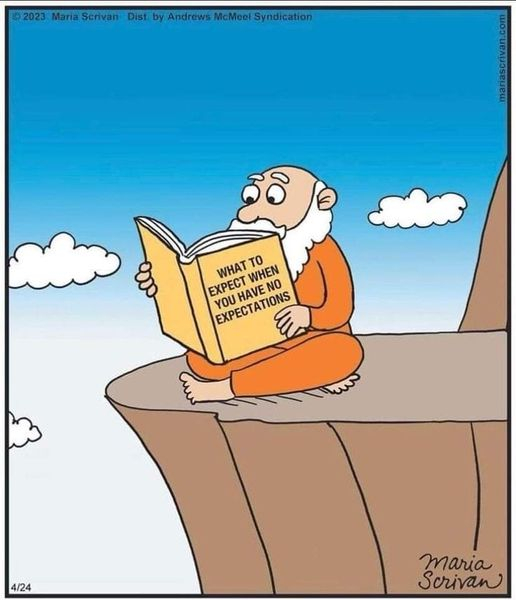Welcome home! Please contact lincoln@icrontic.com if you have any difficulty logging in or using the site. New registrations must be manually approved which may take several days. Can't log in? Try clearing your browser's cookies.
Have I ever truly meditated?
 Jeroen
Luminous beings are we, not this crude matterNetherlands Veteran
Jeroen
Luminous beings are we, not this crude matterNetherlands Veteran
in Meditation
I have done vipassana, shamatha, shikantaza and others, by the book. If meditation is not concentration or technique, then I don’t know if I have ever done it right. ‘Just sitting’ came closest, as a relaxed not-doing which was not tiring.
But even then I never experienced a state of enhanced awareness, it was always just the same.
1


Comments
Were you given instructions by a qualified meditation instructor?
Some of the techniques yes, others no.
I experience the same, the chatter goes at some point. Wish me luck.
I ask myself that sometimes. I've rarely experienced deep concentration or blissed out type meditations. My meditation life has largely been about returning to the experience of the body and letting go of thoughts. Just that has a profound impact on my well being. So I always try to learn and improve but I don't sweat it, whatever it is I am doing seems to have a positive impact.
Have I ever truly meditated?
There are probably as many definitions of meditation as there are practitioners.
Some questioning of whether you are truly meditating or not, tends to be a less deluded space to practice within than just assuming that your meditation is true.
The real difficulty however in attaining a satisfactory answer to this question is more tied up in our attachments to a sense of self than it is about whether our meditation technique is true or not.
If the human condition is seen as a dream state of our ego or identity's storyline,
meditation is simply our attempted disassembly of the constructs of that dream.
To the degree that one approaches meditation as something to be acquired & possessed, is the same degree to which one's slumbering continues over any real awakenings.
To the degree that one approaches meditation as a renunciation of one's attachments, is the same degree to which the question answers itself.
All meditation practitioners who honestly persevere will eventually have awakenings of differing strengths and longevity. The most common prelude to such things though seem to arise when the practitioner no longer seeks out such experiences.
Take some comfort in a meditative truth that is seldom told.
When comparing awakenings.....
Small awakenings arise from small delusions
Big awakenings arise from big delusions.
.
I find I get the best results when I have no goal other than meditation itself. When I expect the improvement to be gradual throughout my life. At first I needed a bit of faith but once I saw the benefits happening gradually I stopped worrying about doing it "right". Then again, I had formal instruction and doubt I would have seen as much improvement going it alone.
Yep that's right 🙏🏾🙏🏾🙏🏾
The higher the expectations, the greater the disappointment...
It seems to me that the quality of awareness does vary. After a particularly deep nights sleep, you are still somewhat ‘fuzzy’ first thing in the morning, and real awareness doesn’t arrive until later. But once that full awareness does arrive, it is largely invariant.
So with meditation, it doesn’t necessarily take you to spaces of increased awareness. You can focus outward, on the body and the senses, or inwards, on the contents of mind or the gaps between thoughts or on the sense of being.
It is very useful to not label as in:
Before you know it you will be just sitting around like the rest of us ...
I feel that true meditation should not be tiring. If meditation demands such focus and concentration that afterwards you feel tired, then something is not right. Part of this is finding a meditation that fits with you. There are many.
I don't think you're actually meditating. Your expectations may be a bit out of line.
Keep this in mind. Shakyamuni didn't meditate to relieve stress, or relax or exercise mindfulness. He meditated to find the solution to birth, old age, sickness and death, and became Buddha.
Why do you meditate? Maybe you should start there.
From my perspective, today...
While concentration is a necessary skill to develop to meditate,
mistaking that concentration for meditation is an attachment in the making.
As some Tibetans warn about some forms of meditation....Don't become like a cat watching a mousehole.
In other words, are you just observing the ebb and flow of all the phenomena that is arising, living, and departing or are you trying to direct it?
There is just about every possible feeling in the world that will arise at some time or another in a meditation practice. Judging our meditation in response to such visitations shows where we have chosen to shift back into a habituated mentality over what the meditation process offers.
Addressing the unknown, compared to what we've known, can often be challenging (and tiring) but is it not what we've been beckoning to?
3 steps forward - 2 steps back.
It seems to me that meditating with a goal in mind is to set yourself up for a mind-generated hallucination, it builds a certain tension. The mind will generally try to give you what you want.
That is why I meditate with ‘just sitting’, it means you let your mind empty of all things other than sitting. No goals, just letting the sensation of sitting be in body and mind, and watching that.
Indeed, judging means you have stepped back into the mind. If you can let things come and go, and watch quietly and dispassionately then you have gotten somewhere, you have gained a measure of peace and separation from the mind.
It is not very different from what the Buddha sat through under the Bodhi tree, a succession of fears and temptations made by your mind especially for you.
According to some teachers, you are doing the right thing when there is
awareness of awareness or according to the Thai Forest Masters, you have realised the Buddho, or 'The one who knows'.
https://newbuddhist.com/discussion/25357/like-oil-and-water
How do you know you are aware of awareness?
Direct your attention away from the objects and towards the subjective knower.
What does the knower know?
The knower knows that everything that arises passes away, everything without exception.
Like a dream, a mirage, a bubble, and emptiness.
ANICCA
The following verse is attributed to Bodhidharma, the first Zen Patriarch.
A special transmission outside the scriptures,
Not founded upon words and letters;
By pointing directly to one’s mind
It lets one see into one’s own true nature and thus attain Buddhahood.
What a great question!
That is a great question. Sitting there in the beginning with thoughts flowing. Start by not following the thought and bring attention back to breath. Still to experience anything the mental thoughts goes on. Then back to breath. So, am I trying to stop thought? Or am I trying to bring attention back to breath? Concentrate and bring the mind to one pointed attention?
Yes! I’ve tried that. Many times, actually, but it never proceeded beyond sometimes sitting for 10 minutes looking at the breath, and then eventually forgetting again. I suppose you could call it meditation, but I think it was more an exercise in concentration.
If you do bring the mind to one-pointed attention, then for how long should you persist?
I have tried to bring the mind to one pointed attention. It doesn't last for long. And there is usually the mental thought behind it saying here I am with no thoughts focused upon my breath. So, I can not say I am doing it right yet. Assuming one can focus the mind and attention upon one point, the shutting down of this self should allow one to perceive other things. However, if there is a glimpse of thoughts then the self which governs this present moment hold dear to the present perceptions?? So, how long should one persist? Guessing as long as it takes to get it right?? Then perception should shift?
Indeed. Most sangha, one of the three jewels, practice concentrated awareness. Not introspection, mind stream wandering. Not hyper ventilation dancing or similar, get them high, flim flam …
So single minded, single purposed focussed concentration is 'good at the start, good in the middle and good in the end'
I asked the question of Google’s Gemini chatbot, it’s reply was not bad, here it is:
======
“There's no single perfect way to meditate, and what constitutes "correct" meditation can vary depending on the meditation technique you're practicing. However, here are some general signs that your meditation practice might be going well:
Increased Focus and Concentration: Do you find yourself becoming more aware of your thoughts and feelings without getting caught up in them? Can you sustain your attention on your breath or mantra for longer stretches of time?
Greater Relaxation and Inner Peace: Do you feel calmer and more at ease after meditating, even if it's just for a short period? Does your mind feel less cluttered and your body more relaxed?
Heightened Awareness: Do you notice your surroundings more vividly after meditating? Are you more aware of your body sensations, thoughts, and emotions?
Reduced Stress and Anxiety: Do you feel less stressed and anxious after meditating regularly?
Improved Emotional Regulation: Do you find you can manage difficult emotions with more ease after consistent meditation practice?
Here are some things to keep in mind:
It's Normal to Have Wandering Thoughts: Don't get discouraged if your mind wanders during meditation. This is perfectly normal for beginners (and even experienced meditators!). The key is to gently bring your attention back to your breath or mantra without judgment.
Meditation is a Skill: Like any skill, meditation takes practice to develop. Be patient with yourself and keep practicing regularly to see improvement.
Different Techniques Have Different Goals: Some meditation techniques focus on relaxation, while others emphasize developing concentration or cultivating insight. The way you "feel" after meditation might vary depending on the technique you're using.
Here are some additional tips to help you know if your meditation is effective:
Learn from a Qualified Teacher: Consider attending a meditation class or workshop with a qualified teacher who can guide you and answer your questions.
Find a Technique that Works for You: There are many different meditation techniques. Experiment with different ones to find what resonates with you.
Track Your Progress: Keep a meditation journal to track your experiences and any changes you notice over time.
Focus on the Journey, Not the Destination: Meditation is a journey, not a destination. The goal is to cultivate present moment awareness and a calmer mind. Enjoy the process and don't get hung up on achieving a specific outcome.
Remember, the most important thing is to find a meditation practice that you can integrate into your life consistently and that brings you a sense of peace and well-being.”
Hmm
